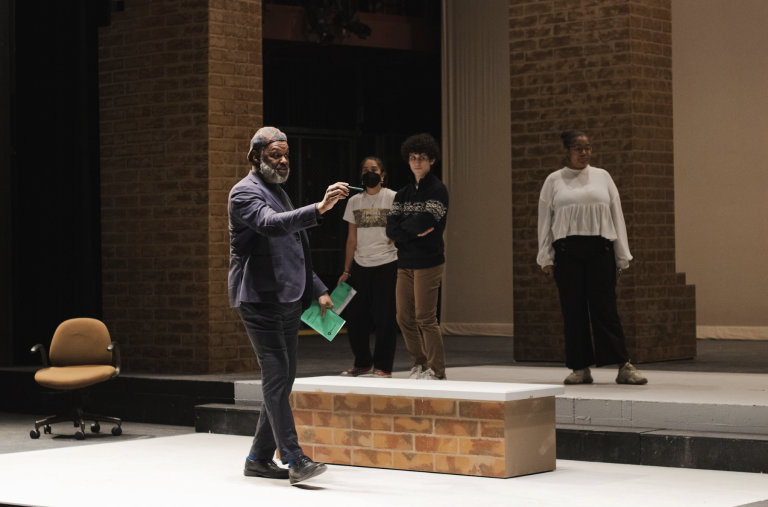MATIAS “DUSTY” PRIBOR, 18
STAFF WRITER
Whether or not we are in the golden age of premium television, shows like Netflix heavyweight House of Cards, Hulu’s period drama, 11/22/63 and HBO’s Martin Scorsese-Mick Jagger team up Vinyl, all have viewers asking themselves if the programming could get any better? This is the advantage of premium television over cable programming that strengthens with each hit show networks like Netflix, HBO, Showtime, and Hulu produce. The success of House of Cards, Game of Thrones, and Homeland (just to name a few) all testify to the growing audience for premium television’s often more adult content.
Netflix timed the House of Cards season four release perfectly for those content with staying in and binge watching 14-hours of Frank and Claire Underwood in one weekend.
While many critics complained that seasons two and three were bogged down by the topical, but slow Underwood-Petrov Cold War narrative, the new season four follows Underwood the Machiavel in his endeavor to secure the presidency in the U.S. election. Along the way the Underwoods encounter challenges that trouble our nation today and in some ways reflect the experience of our current president, Barack Obama. Marital trouble in the Oval Office, Big Data and the threat of terror domestic and abroad, among others, are all compelling narratives that make their way into the rebirth of a show that captured the minds of Americans in its phenomenal first season. Expect a more aggressive and manipulative Frank and Claire Underwood, played timelessly by Kevin Spacey and Robin Wright, while Michael Kelly’s twisted portrayal of the grim Doug Stamper stands out particularly. That said, the show’s verisimilitude is, in large part, its greatest asset. House of Cards recognizes the nation’s experience of political non-bipartisanship, the threat of nascent xenophobia and government corruption in the series’ best season since its groundbreaking premier.
But House of Cards is only one of the non-network projects that is leading the way in the world of television.
Vinyl and 11/22/63, produced by HBO and Hulu respectively mark a progression in the premium television market that overcomes the limitations that restrict cable programs. The content is often more adult in nature – for example the gratuitous drug use in Vinyl is a necessary tool for giving the viewer a true sense of the 1970s music industry – and the lifted restrictions on matters like profanity really allow for a thought provoking experience that is largely absent on cable. Vinyl tells the story of a sell-out record executive from the 70s, Richie Finestra, who, in a fit of passion and drug abuse elects not to sell his label – a decision that would have made him and his partners very wealthy. In search of America’s next big sound, Finestra, played by the slick Bobby Cannavale, explores burgeoning rock and hip hop movements within the perspective of 1970s Manhattan.
The drug use and depictions of excessive behavior are, as mentioned, gratuitous, yet for music lovers Vinyl brings an inside look into the era of record label domination of the industry. Vinyl tells the stories of the legendary artists who earned their names with wild antics and the executives responsible for turning that talent into money.
While the Internet reigns supreme over the music industry of today, the show testifies to the idea that music is special and should be sought after – ultimately reaping benefit upon those who bring it to the world.
11/22/63 follows a slower, more finite pace than House of Cards and Vinyl, which is perhaps due to its limited, eight-episode engagement with the streaming giant Hulu. Based on Stephen King’s best-selling 2011 novel by the same name, the story follows recently divorced schoolteacher Jake Epping (played by James Franco) through a sci-fi, crime storyline where dying café owner, Al Templeton, reveals to Epping a portal leading to 1958. Much like in C.S. Lewis’s The Lion the Witch and the Wardrobe, time does not pass with at the same rate on the other side of this doorway. When Templeton returns, he is several years older and dying from cancer. This time travel is not an easy task for Templeton, who tells Epping that the past does not like to be changed and will fight back. This seems to hint that his efforts in the past predisposed him to terminal cancer. Epping accepts Templeton’s charge to prevent JFK’s assassination only to learn that with each change he makes, the past in turn takes something away from him. The show is both fantastical and authentic in its depiction of the Jim Crow south and the political climate of the time, leaving the viewer to ask what Kennedy’s role in the monumental 1960s would have been.
Premium television companies have absolutely hit their stride in bringing quality programming, as opposed to quantity programming. Apart from a few shows like USA Network’s Mr. Robot, premium networks boast some of the most interesting programming from the past year, while bigger cable networks shuffle in and out their latest “lowest common denominator” programs. Netflix, HBO, Hulu and other premium networks bring sensibility that cable television sorely lacks in the comedy and drama department.
Tuesday, January 14 2025
The Student Newspaper at Trinity College in Hartford, Connecticut




+ There are no comments
Add yours